Find A Professional
More Items From Ergsy search
-

Intro to Angiograms, Angioplasty & Coronary Bypass Grafting
Relevance: 100%
-

Introduction to coronary angiogram and stenting
Relevance: 62%
-

Coronary Bypass Grafting (CABG)
Relevance: 58%
-

Will a heart bypass make me live longer?
Relevance: 51%
-

Before Angioplasty
Relevance: 50%
-
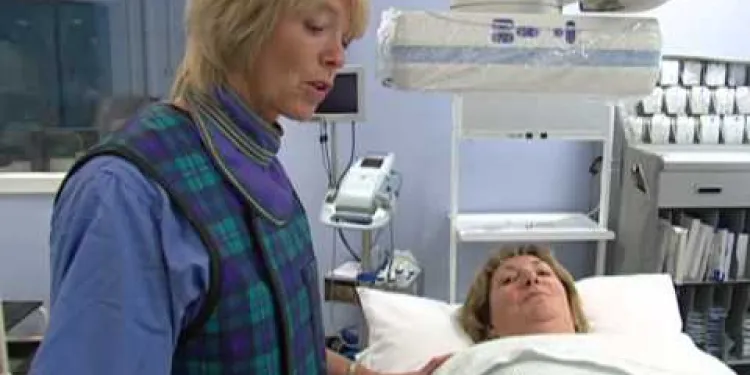
Having a CT Angiogram
Relevance: 38%
-
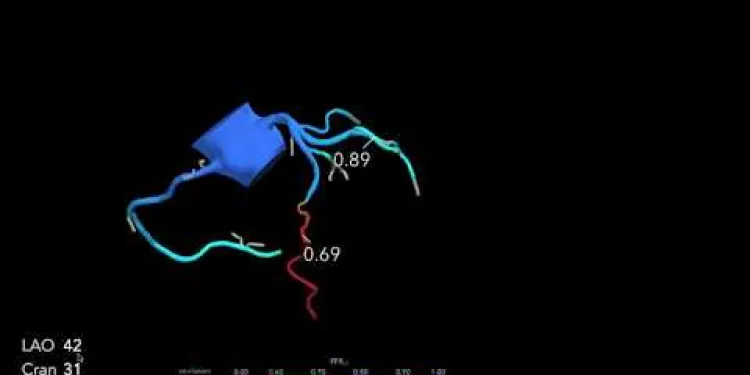
FFR-CT beat invasive conventional coronary angiography says a Cardiologist
Relevance: 35%
-

What is angina and how is it treated?
Relevance: 18%
-

Heart stents
Relevance: 12%
-

Cardiac Physiology Walkthrough
Relevance: 8%
-
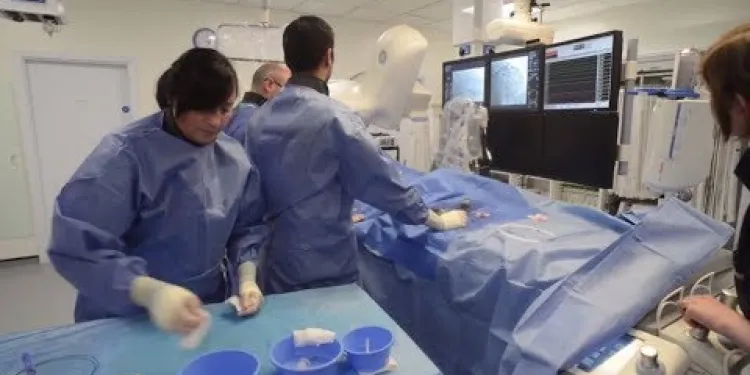
Heart attack care - Raigmore Hospital Inverness, NHS Highland
Relevance: 8%
-

What is the cost of a hair transplant in Turkey?
Relevance: 7%
-
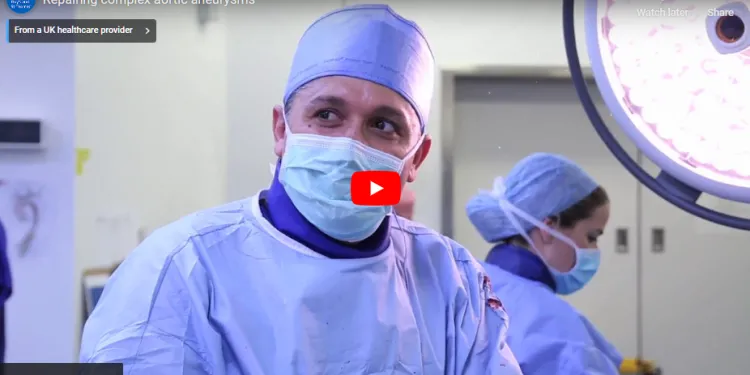
Repairing complex aortic aneurysm
Relevance: 7%
-

What number of grafts do I need for my hair transplant in Turkey?
Relevance: 5%
-

Heart Attack Stories | NHS
Relevance: 5%
-

Heart Failure : When the heart becomes stiff?
Relevance: 5%
-

Heart failure introduction
Relevance: 5%
-

Weight Loss Surgery
Relevance: 5%
-
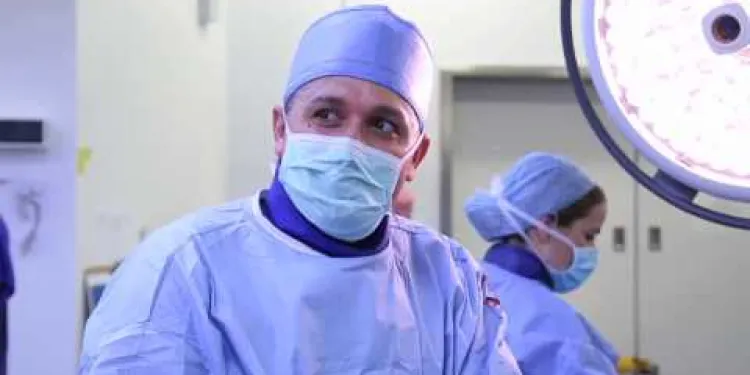
Repairing complex aortic aneurysms
Relevance: 5%
-

Why might someone need a stoma bag?
Relevance: 5%
-

Heart Failure : Heart failure that cannot pump
Relevance: 5%
-

Heart Failure : Symptoms of heart failure
Relevance: 4%
-

How long does it take for CBD to work?
Relevance: 4%
-

What treatments are available for obesity?
Relevance: 4%
-

Are hair transplants in Turkey safe?
Relevance: 4%
-

What signs indicate that my email filters may have been tampered with?
Relevance: 4%
-

Hair Transplants in Turkey
Relevance: 4%
-

Cornea transplant - Your journey
Relevance: 4%
-

Heart Attack Stories | NHS
Relevance: 3%
-

What is a Stoma Bag?
Relevance: 3%
-

How long should I stay in Turkey for my hair transplant?
Relevance: 3%
-

Heart Failure : The normal heart
Relevance: 3%
-

Heart Failure : What is heart failure?
Relevance: 3%
-

What exactly is an arrhythmia?
Relevance: 3%
-
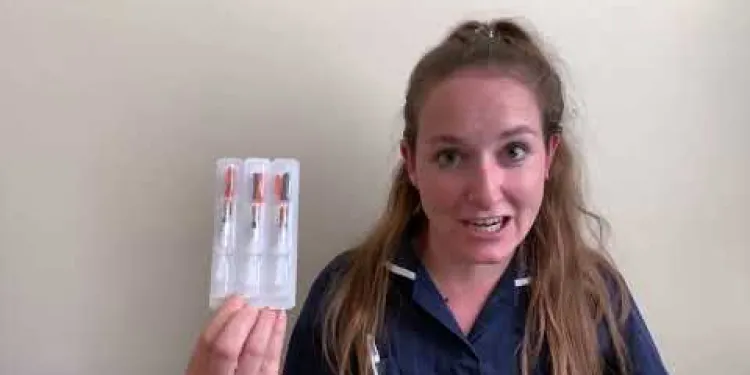
Bariatric Surgery - What to expect when you come to hospital for your operation.
Relevance: 3%
-

Do stoma bags require a prescription?
Relevance: 2%
-

How long does it take to receive a tax refund from HMRC?
Relevance: 2%
-

How long does the caffeine effect last from a pouch?
Relevance: 2%
-

Can new variants cause reinfection?
Relevance: 2%
-

Does coffee consumption have any long-term heart health effects?
Relevance: 2%
Understanding Angiograms, Angioplasty & Coronary Bypass Grafting
Angiograms
An angiogram is a diagnostic procedure used to visualise the blood vessels in the heart and other parts of the body. A contrast dye is injected through a catheter into the blood vessels, and X-ray images are taken to detect any blockages or abnormalities. In the UK, angiograms are commonly performed to assess conditions such as coronary artery disease and to plan further treatments like angioplasty or coronary bypass grafting.
Angioplasty
Angioplasty, also known as percutaneous coronary intervention (PCI), is a minimally invasive procedure used to widen narrowed or obstructed arteries or veins. During angioplasty, a small balloon attached to a catheter is inserted into the clogged artery and inflated to open up the blockage. Often, a stent (a tiny mesh tube) is placed in the artery to keep it open. This procedure can significantly improve symptoms of coronary artery disease, such as chest pain and shortness of breath, and is frequently performed in the UK.
Coronary Bypass Grafting
Coronary bypass grafting (CABG) is a surgical procedure used to treat severe coronary artery disease. It involves taking a blood vessel from another part of the body, such as the leg or chest, and grafting it onto the coronary artery to bypass the blocked section. This creates a new pathway for blood to flow to the heart muscle. CABG is considered when angioplasty is not suitable or when multiple coronary arteries are blocked. This procedure can improve heart function, alleviate symptoms, and prolong life. In the UK, it is performed by specialized cardiac surgeons in hospitals equipped with advanced surgical facilities.
Understanding these procedures and their applications can help patients in the UK make informed decisions about their cardiovascular health and treatment options.
Frequently Asked Questions
What is an angiogram?
An angiogram is a medical imaging procedure used to visualize the inside of blood vessels and organs of the body, particularly the arteries, veins, and heart chambers.
Why would a doctor recommend an angiogram?
Doctors recommend an angiogram to check for blocked or narrowed blood vessels in the heart, assess the severity of coronary artery disease, or evaluate symptoms such as chest pain or shortness of breath.
What preparation is needed before an angiogram?
You may be asked to avoid eating or drinking for several hours before the procedure. Inform your doctor about any medications you are taking and any allergies, particularly to iodine or contrast dye.
How is an angiogram performed?
An angiogram is performed using a catheter inserted into a blood vessel, usually in the groin or wrist. A contrast dye is injected through the catheter, and X-ray images are taken to visualize the blood vessels.
What are the risks associated with an angiogram?
Risks include bleeding at the catheter insertion site, allergic reactions to the contrast dye, and, in rare cases, damage to the blood vessels or kidneys.
What is angioplasty?
Angioplasty is a procedure to restore blood flow through the artery. A balloon is inserted and inflated to open up blocked or narrowed blood vessels, sometimes followed by stent placement.
Why might someone need angioplasty?
Angioplasty is needed if there are blocked arteries that could cause heart attacks, chest pain (angina), or other heart-related issues.
What are the types of stents used in angioplasty?
There are bare-metal stents and drug-eluting stents. Drug-eluting stents are coated with medication that helps prevent the artery from becoming blocked again.
Is angioplasty a permanent solution?
While angioplasty can provide long-term relief from symptoms, it is not always a permanent solution. Lifestyle changes and medication may be needed to maintain artery health.
How long does recovery take after angioplasty?
Recovery can vary, but many patients can return to normal activities within a few days. Your doctor will provide specific guidelines based on your condition.
What is coronary bypass grafting (CABG)?
Coronary bypass grafting (CABG) is a surgical procedure where blood vessels from another part of your body are grafted to bypass the blocked arteries in your heart.
When is CABG recommended?
CABG is recommended for patients with severe coronary artery disease that cannot be effectively treated with medication or angioplasty, or when multiple arteries are blocked.
How is CABG performed?
CABG is performed under general anaesthesia. Surgeons take a healthy blood vessel from your leg, arm, or chest and connect it to bypass the blocked artery.
What are the risks associated with CABG?
Risks include infection, bleeding, heart attack, stroke, and complications from anaesthesia. Your surgical team will discuss these risks with you before the procedure.
What is the recovery process like after CABG?
Recovery from CABG includes a hospital stay of about a week, followed by several weeks of gradually increasing activity levels. Full recovery can take several months.
Useful Links
- Ergsy carfully checks the information in the videos we provide here.
- Videos shown by Youtube after a video has completed, have NOT been reviewed by ERGSY.
- To view, click the arrow in centre of video.
- Most of the videos you find here will have subtitles and/or closed captions available.
- You may need to turn these on, and choose your preferred language.
- Go to the video you'd like to watch.
- If closed captions (CC) are available, settings will be visible on the bottom right of the video player.
- To turn on Captions, click settings .
- To turn off Captions, click settings again.
More Items From Ergsy search
-

Intro to Angiograms, Angioplasty & Coronary Bypass Grafting
Relevance: 100%
-

Introduction to coronary angiogram and stenting
Relevance: 62%
-

Coronary Bypass Grafting (CABG)
Relevance: 58%
-

Will a heart bypass make me live longer?
Relevance: 51%
-

Before Angioplasty
Relevance: 50%
-

Having a CT Angiogram
Relevance: 38%
-

FFR-CT beat invasive conventional coronary angiography says a Cardiologist
Relevance: 35%
-

What is angina and how is it treated?
Relevance: 18%
-

Heart stents
Relevance: 12%
-

Cardiac Physiology Walkthrough
Relevance: 8%
-

Heart attack care - Raigmore Hospital Inverness, NHS Highland
Relevance: 8%
-

What is the cost of a hair transplant in Turkey?
Relevance: 7%
-

Repairing complex aortic aneurysm
Relevance: 7%
-

What number of grafts do I need for my hair transplant in Turkey?
Relevance: 5%
-

Heart Attack Stories | NHS
Relevance: 5%
-

Heart Failure : When the heart becomes stiff?
Relevance: 5%
-

Heart failure introduction
Relevance: 5%
-

Weight Loss Surgery
Relevance: 5%
-

Repairing complex aortic aneurysms
Relevance: 5%
-

Why might someone need a stoma bag?
Relevance: 5%
-

Heart Failure : Heart failure that cannot pump
Relevance: 5%
-

Heart Failure : Symptoms of heart failure
Relevance: 4%
-

How long does it take for CBD to work?
Relevance: 4%
-

What treatments are available for obesity?
Relevance: 4%
-

Are hair transplants in Turkey safe?
Relevance: 4%
-

What signs indicate that my email filters may have been tampered with?
Relevance: 4%
-

Hair Transplants in Turkey
Relevance: 4%
-

Cornea transplant - Your journey
Relevance: 4%
-

Heart Attack Stories | NHS
Relevance: 3%
-

What is a Stoma Bag?
Relevance: 3%
-

How long should I stay in Turkey for my hair transplant?
Relevance: 3%
-

Heart Failure : The normal heart
Relevance: 3%
-

Heart Failure : What is heart failure?
Relevance: 3%
-

What exactly is an arrhythmia?
Relevance: 3%
-

Bariatric Surgery - What to expect when you come to hospital for your operation.
Relevance: 3%
-

Do stoma bags require a prescription?
Relevance: 2%
-

How long does it take to receive a tax refund from HMRC?
Relevance: 2%
-

How long does the caffeine effect last from a pouch?
Relevance: 2%
-

Can new variants cause reinfection?
Relevance: 2%
-

Does coffee consumption have any long-term heart health effects?
Relevance: 2%